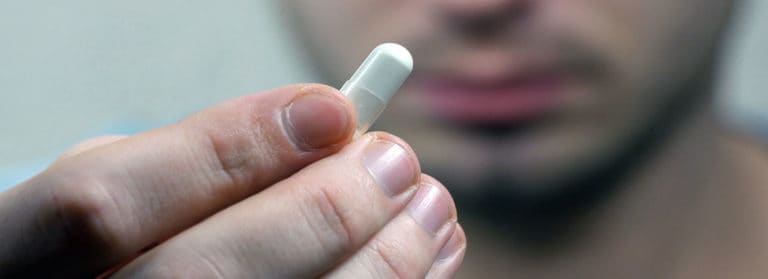Methamphetamine is an illegal and highly addictive drug that can have a particularly negative impact on an individual’s life. It is a central nervous system stimulant also known as ice, speed, blue, or crystal. It is a white, odorless, bitter powder. People take it by smoking, snorting, swallowing a pill, or injecting the powder after it has been dissolved in alcohol or water.
You may have seen photos or heard about the physical effects of meth use on the human body. However, it’s not always easy to tell if someone is using meth regularly in the early stages. If you think your loved one is using meth, you need to know the signs of addiction so you can encourage them to get help.
How Methamphetamine Affects the Brain
Meth use causes an increase in the amount of dopamine in the brain. Dopamine affects motivation, body movement, and the reinforcement of rewarding behaviors. Methamphetamine releases high levels of dopamine in the reward centers of the brain and this makes the user want to experience that feeling again.
Signs and Symptoms of Meth Use
People who use meth usually experience a rush followed by a crash. The rush can last from eight hours to a day. The individual will display high energy and euphoria and they may behave aggressively. They may act compulsively, be more active than usual, and they may perform repetitive tasks. Some people also experience paranoia, confusion or detachment from reality. You may also notice sweating, rapid eye movement, tremors, vomiting, dilated pupils, and high temperatures.
After the rush, the individual will crash. The crash typically lasts from three to ten days. This is basically an extended period of exhaustion. Extreme tiredness is the main indicator of a meth crash. Many users experience bouts of depression when they crash. If you notice hyperactivity followed by days of sleep, it’s possible the individual in question is using meth.
In addition to the rush and the crash, withdrawal or “tweaking” will also indicate someone has used meth. Tweaking comes after the crash. Once users recover from the exhaustion of the crash, they usually crave more meth. If they don’t get access to the drug or the amount they take doesn’t deliver the same high, they will experience withdrawal.
The most common symptom of tweaking is constantly scratching or itching that results in sores. The person may also seem nervous and irritable. Tweaking is actually a psychotic state and it can include insomnia and hallucinations. If you notice a rush and a crash followed by tweaking, you can be almost certain your loved one is using meth.
Signs of Long-term Meth Addiction
People can become addicted to meth after using it just one time. Just a single cycle of rush, crash and tweaking can start an addiction. If a person keeps taking the drug for an extended period, they will begin to display certain physical symptoms. One of the most common signs of long-term meth addiction is “meth mouth”. Addicts often have severe dental problems and sores on the skin. Since they usually neglect nutrition, meth addicts usually become very thin.
These signs indicate a meth use disorder especially in people who never displayed these characteristics before. At this point, it’s usually pretty easy to identify that someone has a problem with meth. You need to reach out to a professional to learn how you can help your loved one. Without proper intervention, meth can ruin an individual’s life and addiction has an impact on the entire family.
Treating a Methamphetamine Addiction
There are no approved medications for treating methamphetamine addiction. However, behavioral therapies have proven to be effective. Misuse can be prevented, and addiction can be treated. Cognitive-behavioral therapy helps meth users to recognize and avoid the triggers that lead to use. People can recover from meth addiction as long as they get treatments and they address the medical and personal issues that stem from long-term meth use.
Contact Asheville Recovery Center Today if Your Loved One is Using Meth
If you believe your loved one is dealing with a meth addiction, you may not know what to do next. Before you confront them or accuse them of being an addict, reach out to a recovery professional for advice. At Asheville Recovery Center, we can help you to understand addiction and give you advice on how to approach your loved one. When they’re ready to seek help, we’re here to provide a personalized treatment plan. Contact us today to schedule a consultation.









